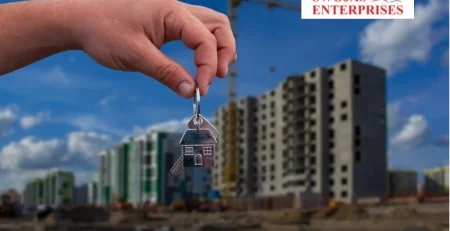Everything You Need to Know About Society Formation After Possession
Swojas Enterprises2025-06-26T11:57:42+00:00When considering buying a new home, it is important to see if the builder or the people have already formed a housing society. What is a housing society? A housing society is a legal association of homeowners within a residential project, created to manage common responsibilities like maintenance, security, and community rules.
Forming a society post-possession isn’t just a formality—it gives legal recognition to the residents as a collective body, empowering them to make decisions, manage finances, and resolve disputes effectively. The formation process is governed by local cooperative society laws and ensures transparent, accountable community management going forward.
When and How Does Society Formation Begin?
Typically, the society formation process begins once a majority of homeowners have taken possession of their units in a newly built residential project. This can range from a few months to a year after the handover, depending on occupancy levels and coordination among residents.
Key stakeholders in the process include:
Homeowners or resident representatives
The developer or builder
Local government or the Registrar of Cooperative Societies
The first step involves organizing informal meetings among residents to discuss forming a society. Consensus is needed to move forward with the registration process, nominate initial office bearers, and start collecting necessary documentation.
Legal Process for Society Registration
Registering a cooperative housing society involves several steps and paperwork which are legal in nature. While the exact process may vary by state, the core steps are generally consistent across India and followed while founding most housing societies.
Documents Required for Registration
Application for registration signed by the required number of members (typically 60% of flat owners)
Memorandum of Association (MOA)
Society Rules and Regulations or By-laws
Proof of possession or sale agreements for each unit
No Objection Certificate (NOC) from the builder
Address proof of the society
PAN card of the society
Affidavits and undertakings from members
Step-by-Step Registration Process
Initial meeting to gather interested residents and form a provisional committee.
Drafting of bylaws and collecting member information.
Submission of documents to the Registrar of Cooperative Societies.
Verification by the Registrar’s office.
Issuance of registration certificate—this officially recognizes the housing society.
Fees and Timelines
Registration fees vary by state but are generally modest. The process can take 1–6 months depending on documentation accuracy and Registrar backlog.
Key Legal Documents
Some legal documents form the foundation of the society:
Memorandum of Association (MOA): Outlines the society’s objectives and basic structure.
Society Rules and Regulations: These govern how the society operates, votes, handles finances, and enforces discipline.
Member list and office bearers: Names of residents forming the initial managing committee (President, Secretary, Treasurer, etc.) must be submitted.
Roles and Responsibilities in a Newly Formed Society
Once the society is registered, it must elect or appoint a Managing Committee to oversee day-to-day functions. This committee typically includes:
- President: Heads the society and presides over meetings.
- Secretary: Handles documentation, correspondence, and compliance.
- Treasurer: Manages finances, including collection of dues and preparation of budgets.
The committee’s role is to ensure transparency, fairness, and legal compliance in all matters affecting the community.
Maintenance and Common Area Management
With the society in place, collective responsibilities come into play. This includes:
Maintenance fee collection: Ensuring timely contributions from all members.
Upkeep of shared facilities: Managing services like cleaning, gardening, elevator maintenance, and security.
Dispute resolution: Implementing systems for handling complaints, enforcing rules, and managing disagreements among residents.
Benefits of Society Formation for Homeowners
Forming a housing society comes with several tangible benefits:Legal protection: Ownership and rights are clearly documented and protected.
Collective decision-making: Residents have a voice in key matters like maintenance costs, vendor selection, and rule enforcement.
Easier access to services: Societies are recognized by municipal bodies, making it easier to get utility connections, tax records, and civic services.
Challenges and How to Overcome Them
While forming a society is beneficial, the process can face roadblocks:Delays in registration: Incomplete paperwork or lack of awareness among residents can slow things down.
Coordination issues: Getting multiple homeowners on the same page isn’t always easy.
Developer non-cooperation: Some builders delay handing over control or key documents needed for registration.
Solutions:
Organize early and designate a few proactive residents to lead the effort.
Hold regular meetings and maintain communication through WhatsApp groups or email threads.
Consult a legal expert or housing consultant for smoother execution.
Tips for a Successful Society Formation
Start early: Don’t wait for full occupancy. Initiate discussions as soon as a sizable number of residents have moved in.Document everything: Keep clear records of meetings, attendance, decisions, and communication.
Get legal support: For bylaws, MOA, or disputes with the developer, professional legal advice can prevent future issues.
Conclusion
Society formation isn’t just about administration—it’s about building a strong, cooperative community. It gives homeowners the power to manage their collective interests and create a safe, well-maintained living environment.If you have taken possession of your home, consider society formation not as a task but as a necessary foundation for long-term peace of mind and community development. Take the lead, get involved, and ensure your new home is part of a well-run, resident-first housing society.











